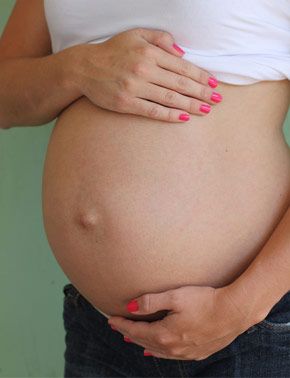If you’ve been drinking coffee for any length of time, you’ve probab...

Many women experience an aversion to coffee when they first become pregnant. It’s so common that ‘coffee aversion’ is listed as one of the possible ‘symptoms’ of pregnancy. Now it seems that there may be a very good reason for that. Research by the Kaiser Permanent Division of Research strongly suggests that caffeine may double the risk of miscarriage in pregnant women.
Previous research has showed a link between the consumption of caffeine and increased miscarriage risk, but there was speculation that the association was due to healthy women reducing their intake of caffeine during pregnancy. This study specifically looked at 1,063 pregnant women who did not change their caffeine consumption during pregnancy. It is the first study that completely controlled for morning sickness and coffee aversion, only following those women who continued to drink caffeinated beverages as they had before pregnancy.
The study founds that women who drank 200 mg of caffeine or more per day – the amount of caffeine in two regular cups of coffee or five 12-ounce cans of soda – had twice the risk of miscarriage as women who didn’t drink caffeine at all. Women who drank less than 200 mg of caffeine a day increased their risk of miscarriage by 40 percent.
The source of the caffeine didn’t seem to make any difference. Caffeine intake from non-coffee beverages like soda, tea and hot chocolate showed the same increased risk of miscarriage.
The study’s author said that pregnant women should probably consider not consuming caffeine during pregnancy because the research provides “clearer and stronger evidence that high doses of caffeine intake during pregnancy can increase the risk of miscarriage”.
Researchers have speculated for some time that caffeine, which crosses the placenta to the fetus, may be difficult for the fetus to metabolize because their metabolic system is immature. They also believe that caffeine may influence cell development and decrease placental blood flow.
Researchers took into account the amount of caffeine the women drank as well as the type of drink, when they took their initial drink, how often and how much they drank and whether they had changed how they drank their caffeine drinks since becoming pregnant.
They also considered other potential risk factors for miscarriage including age, race, education, marital status, household income, smoking, alcohol consumption, exposure to magnetic fields, hot tub use and nausea and vomiting. The women were followed up to 20 weeks gestation for all women.
Tracy Flanagan, MD, Director of Women’s Health for Kaiser Permanent Northern California, had these suggestions for pregnant women:
– If you must have caffeine, try to keep it to one cup of coffee or less a day.
– Switch to decaf coffee or other beverages during your pregnancy.
– Try natural energy boosters like a brisk walk, yoga stretches or snacking on dried fruits and nuts.
Co-authors on the study included Xiaoping Weng, Ph.D. and Roxana Odouli, MSPH, also with the Kaiser Permanente Division of Research. The Study was supported in part by the California Public Health Foundation.
Some posts on our site may contain amazon affiliate links. We may earn affiliate commission from amazon when you purchase through those links.
Cynthia Elayne says
Hi, recently I have developed a strong urge to drink coffee now that I am pregnant. I prefer the strong stuff! However, I have noticed that after my 2nd cup of coffee I get really nauseated and I feel jitterish. It actually feels as though I am developing a stomach virus!! Is this the caffeine or aversion to coffee? I am not sure…